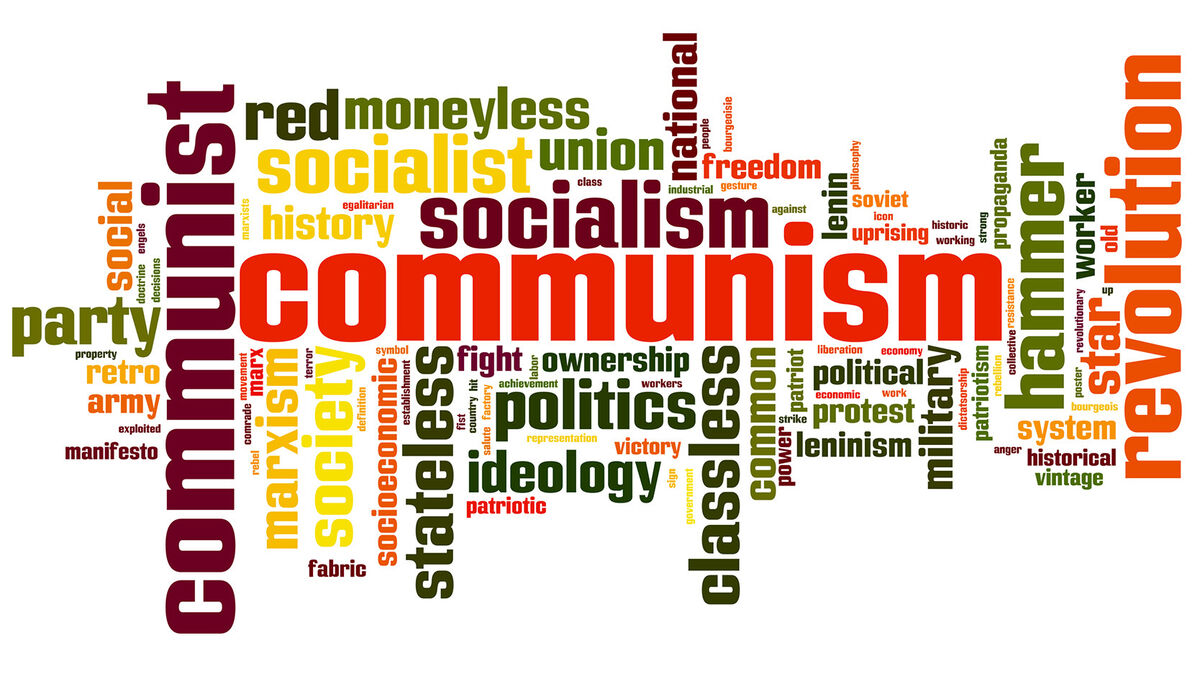
Ideology is defined as a set of shared beliefs within a group, such as a nation or social class. This body of beliefs influences the way individuals think, act and view the world. Review a selection of political and cultural ideology examples to develop a deeper understanding and answer the question, "What is ideology?"
Ideology Meaning
There are many different ideologies, as any system of beliefs shared by a group of people can be described as an ideology. The term is most often used to describe the common principles of certain political beliefs or parties, as well as beliefs that are unique to certain cultures or belief structures. Most people subscribe to multiple ideologies. For example, a person who follows a particular religion and identifies with a political party has beliefs consistent with at least two ideologies.
Examples of Political Ideologies
Political parties embody a range of ideals covering government, economics, education, healthcare, foreign policy, and more. The ways that political parties differ from each other are referred to as ideological differences. Political ideology impacts one's beliefs about the role of government in society.
- Classical liberalism is a capitalistic ideology that stands for a limited government with political freedom, civil liberties and laissez-faire economic policies.
- Social or modern liberalism is liberalism that emphasizes social justice and economic issues while ensuring both individual freedom and the common good.
- Conservatism is a political ideology that emphasizes preserving traditional social institutions and values. This ideology also seeks small, or limited, government.
- Social democracy emphasizes representative democracy paired with redistribution of wealth to fund social justice and economic welfare programs.
- Neo-liberalism embodies free trade, privatization, deregulation, laissez-faire economic policies, low taxes, and minimal government spending.
- Marxism is a political and economic ideology focused on achieving a classless society. The idea is to eliminate class struggles by emphasizing the common good.
- Bolshevist ideology focused on establishing a dictatorship of the proletariat (the working class). This radical Marxist faction ruled Soviet Russia under Lenin.
- Leninism focused on a proletariat dictatorship based on Vladimir Lenin’s theories of government. This ideology was a precursor to Communism.
- Communist ideology promotes collective/public ownership of property, with the government maintaining ownership of the means of production and transportation.
- Named for Leon Trotsky, the Trotskyism ideology advocated for a worldwide revolution of the working class. It sought to overthrow capitalism in every country.
- Stalinism is Joseph Stalin's totalitarian ideology where dissent of any type is not tolerated. A Stalinist economic system combines elements of Marxism and Leninism.
- Maoism is a form of communism that was once used in China under the leadership of former president Mao Zedong. It was grounded in Marxist and Leninism.
Examples of Common Cultural and Social Ideologies
Not surprisingly, there is also a wide variety of cultural and social ideologies. Review some examples of culture to get an idea of the many different ideologies that exist. As you consider these ideologies, think about the many ways culture impacts people's actions and beliefs.
- Many people and groups within society are very focused on environmental protection and related activism. This has led to an ideology of environmentalism.
- People who subscribe to a racist ideology tend to believe that their race is superior to other races. This can lead to bigotry, bias and hatred on the basis of race.
- Feminism as an ideology advocates for equality for women economically, socially and politically. It also deals with the rights of women, including reproductive rights.
- As an ideology, individualism focuses on the inherent worth of each individual. It emphasizes acceptance, freedom and self-sufficiency.
- Those who subscribe to the ideology of anti-intellectualism minimize, or even scorn, the validity or importance of facts, data and academic expertise.
- Equality of opportunity is an ideology that seeks a level playing field where no person's opportunities in life are limited by prejudice or discrimination.
- The work ethic ideology is a set of beliefs that focus on the moral virtue of diligence with regard to work. The idea is that hard work strengthens character.
- Religions are all ideologies; beliefs vary within each one. Some believers strictly follow all the tenets while others may choose the ones they feel are most important.
- A matriarchal ideology is one in which women have most of the power in society, which is female-dominated. Women hold key roles in government and elsewhere.
- A patriarchal ideology is one that leads to a male-dominated society, in which men are the primary holders of power within all aspects of society.
Exploring Ideology Examples
So, now you have examples of different ideologies specific to politics, culture and society. Think about some of your own beliefs and principles to determine your personal ideologies. Does this give you a different perspective? Now that you're familiar with several ideology examples, spend some time investigating related topics. Start by exploring cultural lag examples and their impact on society. This may shed some light on how and why ideological beliefs evolve over time.